#la pucelle d'orleans
Text
aaaaaaaaaaa too busy almost forgorrrrr

My forever La Pucelle d'Orleans
254 notes
·
View notes
Text
ME: You see, the art is stylized, in accordance with a particular set of rules that convey meaning. The meaning here is that you're famous. A model for people to follow. An inspiration.
JEANNE D'ARC, LA PUCELLE D'ORLEANS: C'est pour ça que je suis blonde et que j'ai des seins si énormes?
ME: No, the blonde part is symbolism concerning your role in tribadic trysts.
JEANNE: Puis-je les voir? Les rencontres érotiques avec les femmes?
188 notes
·
View notes
Text
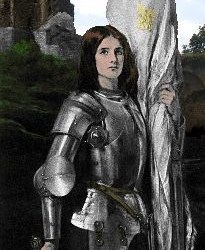
Jeanne d'Arc - by Paul Dubois
#jehanne darc#jeanne d'arc#joan of arc#juana de arco#jeanne la pucelle#la pucelle#joan the maid#the maid#the maid of orleans#la pucelle d'orleans
9 notes
·
View notes
Photo
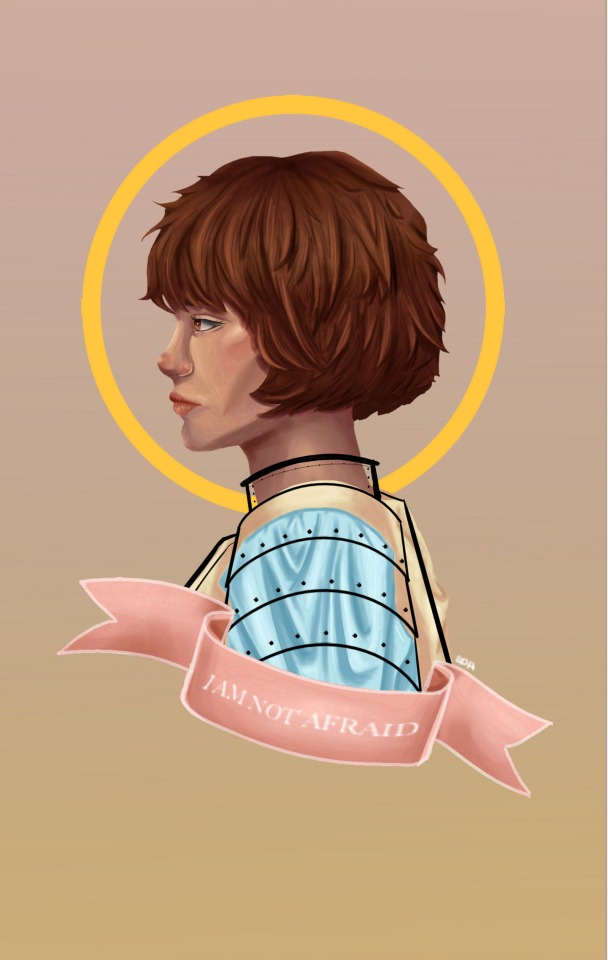
st. joan
redbubble
society6
#joan of arc#st. joan#st. joan of arc#saint joan of arc#artists on tumblr#bonelessbooksdrawns#joan of arc art#jeanne d'arc#saint#catholic#armor#medieval#feminism#feminist#i am not afraid#christian#christianity#la pucelle d'orleans#realism#portrait#profile#light blue#gold#halo#pink
45 notes
·
View notes
Photo
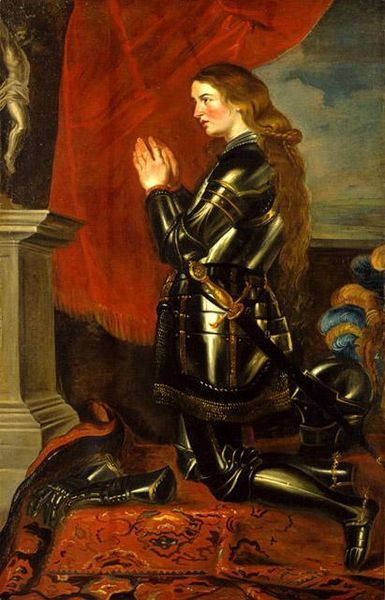
Jeanne d’Arc – by Peter Paul Rubens
#juana de arco#la doncella#juana la doncella#la doncella de orleans#jeanne d'arc#la pucelle#la pucelle d'orleans#jeanne la pucelle#jehanne darc#joana d'arc#la donzella#joana la donzella#la donzella d'orleans
11 notes
·
View notes
Photo
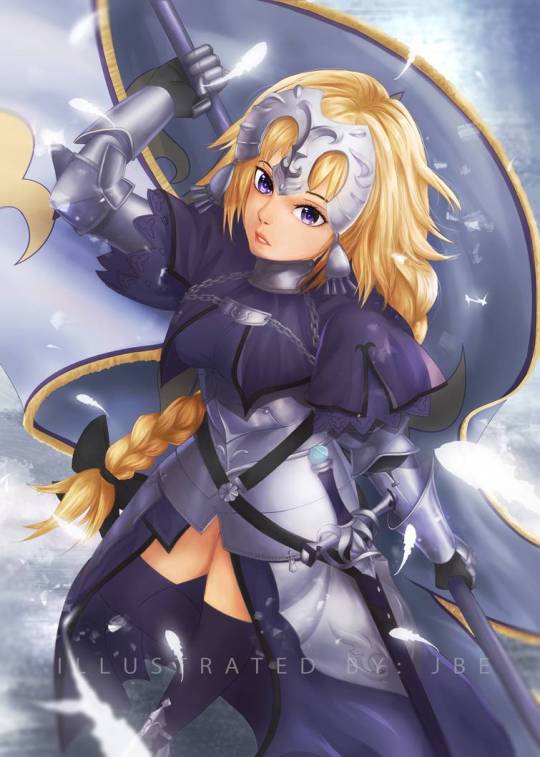
La Pucelle d'Orleans by JBasco15
2 notes
·
View notes
Photo

La pucelle nous fait les gros yeux aller d'Orleans #antony92 #antony92160 #autumn #automne #leaves #feuilles (à Antony, France) https://www.instagram.com/p/B49_bJ3pfVF/?igshid=hqzcvgegpboa
0 notes
Text
Title: La Pucelle et la Coccinelle (Part 6)
Fandom: Miraculous Ladybug
Word count: 3603
Prologue | Part 1 | Part 2 | Part 3 | Part 4 | Part 5
Second part for the night! I’m thinking I’ll post 5 in all tonight since I missed last night’s posting.
Dunois turned at their cries, and then turned back towards Joan. His expression had gone from shock to borderline reverence. A miracle, Tikki saw him mouth to himself.
Their first stop was in the city of Blois, where Joan met the rest of her troops. Provisions for Orleans were already being gathered into boats upon her arrival, much to her satisfaction. The commanders met with her shortly after she was settled in her encampment. There were quite a few of them, some whose names Joan was familiar with and others she had not apparently heard of before. Father Pasquerel accompanied her to her meeting with them.
“Keep in mind, la Pucelle, that you may have been given command of the army, but only titular command,” one of the commanders, a lord named Louis de Culan, warned her. “We are the ones who will be making all of the decisions in our battle with the godons.” (Godon, Tikki had gathered, was a rather derogatory name the army had taken to using for the English. Joan had already used the word on occasion herself.) “Overstepping your bounds will not be looked upon kindly.”
“I have no intention to do so unless it be by the will of God,” Joan promised. “For His will is much higher than yours, Lord de Culan.” She leaned forward intently. “Tell me of my men. My voices have given me much cause for distress, because they have told me that there are great vices here.”
“It is standard fare for an army, little maid,” said another commander, this one not-so-affectionately referred to as La Hire (Tikki was beginning to see why, as the man had yet to stop scowling). “Gambling, drinking, the lot. And by my staff, you will not be able to stamp that out. The men will have their pleasures.”
La Hire, Tikki thought, had no idea what sort of impassioned determination he had just unleashed in Joan.
Joan whirled on La Hire. “You say I have no right to give military commands,” she said, her voice taking on that stubborn tone that left no room for argument. “Very well. But I am here by the will of the dauphin and the will of God Himself, and I have the right to give my commanders instruction for their own good. You will all”—she pointed around to every one of the commanders—“give up your swearing, and attend Mass and confess your sins with the rest of our troops.” She locked her eyes on La Hire again. “Such sinfulness is the very reason why God has been permitting the English to win. And I will have none of it in my army.”
She spoke before her troops that night, and conveyed much the same message to them, although in far more detail. Her primary targets, though, were the prostitutes and mistresses of the soldiers who had settled in the encampment. “Those of you who are their mistresses, you must either marry your lover or leave the camp at once,” she instructed. “As for you camp followers,” (referring to the prostitutes,) “I will give you one day to leave or you will face the consequences personally at my hand.” She went on to require that they all attend Mass and confession, and prohibited any looting of civilian property that they might have opportunity for during their battles. A surprisingly large number of them obeyed. Even most of the prostitutes and mistresses left.
Most.
Joan found one prostitute in the camp the next night, after their grace period had ended. Without any scolding or words of disappointment, she drew her sword on the girl and shooed her out of the camp at swordpoint. “Go back to your father's house,” she said, not unkindly, when the fear-stricken girl had been ushered out to the roads. “This place is not where you belong.”
Tikki wasn't sure if the girl obeyed Joan's words or not, but she didn't show up in the camp again.
Joan herself made it very clear to her men that she was not there to be their new plaything. Always, always, even when sleeping, she wore her armor to protect her chastity. Tikki warned her that sleeping in heavy plate armor was going to leave bruises; Joan replied that she would rather have bruises than lose her virtue.
She really needn't have bothered, Tikki thought. While waiting outside Friar Pasquerel's makeshift confessional for Joan, she overheard soldiers commenting more than once that despite Joan's shapeliness, they didn't find themselves inclined to lust after her whatsoever. One soldier even remarked that it was almost miraculous. His companion went so far as to say that he didn't have the will to sin when she was around. Tikki smiled to herself at that. Joan would have liked to hear that.
Her commanders obeyed her orders to go to confession as well. Even La Hire, who had seemed during that first meeting to be the most opposed to what Joan was requiring of her men, went to one of the army's priests for confession.
A banner was also made for gathering the priests, at Joan's request, with a depiction of Jesus crucified. Joan had them assemble twice a day for hymns and prayers. Those soldiers who had confessed were invited to join them. Joan herself was there for each gathering. She liked to meet with the priests and friars often, particularly those of the mendicant orders like Friar Pasquerel. When she wasn't with her commanders, she was with the friars.
It was there at Blois that Joan took out the letter which she had dictated in Poitiers, and requested that one of her commanders help her to sign it. “Being of the station that I am, I have not had opportunity to learn to read nor write,” she explained to them. “Still, I wish to send this letter to the English under my own name, by my own pen, and this means I must sign it.”
There was a long silence, until finally the archbishop Regnault de Chartres stepped forward. “I shall teach you, child,” he said. And teach her he did. The letter was sent forward to the English that night.
When the provisions for Orleans had been gathered, the army moved out along the south side of the Loire River. The priests headed the assembly and sang hymns the whole way, for both days of their journey. Joan followed immediately behind them with her banner and her commanders. And of course, she continued to refuse to remove her armor when they stopped to camp at night.
On the third day of their trip, they arrived in Checy, at which point Joan became very irritated with her commanders. “We have gone past the English,” she said disapprovingly. “You led me here under the impression we were going to where Talbot and the English are, and for that I am most angry with all of you. We are soldiers! The dauphin's soldiers! This sort of cowardice will not grant us victory against the English.”
“Communicate your displeasure to the Bâtard d'Orleans,” La Hire said. “You will receive no remorse from us.”
Joan did exactly that. When they arrived at the point where barges were prepared to ferry the men across the river, the wind was unfavorable enough that there was to be a delay in their transport across. For the meantime, Joan insisted she be brought directly to Dunois, the Bâtard himself. “Are you the Bâtard d'Orleans?” she demanded of him.
Dunois didn't seem to notice the irritation in her tone, because he brightened at her approach. “I am he,” he replied, “and I rejoice at your arrival.”
Joan skipped the niceties. “Was it you who decided that I should come here, to this side of the river, rather than going straight to where Talbot and the English are?”
He looked a little cowed now, and somewhat apologetic. “I, and many others much wiser than myself, gave this counsel to your commanders, yes. We believed it would be better and safer for your arrival.”
“In God's name, the counsel of God our Lord is safer and wiser than yours,” Joan retorted. “You thought to deceive me, and you deceive yourselves more, because I bring you better aid than ever came to any soldier or city, because it is aid from the King of Heaven. Nevertheless it proceeds not from love of me, but from God Himself, who, at the request of Saint Louis and Saint Charlemagne, took pity on the city of Orleans, not wishing to allow the enemy to have both the body of the lord of Orleans and also his city.”
Dunois gaped at her. Just then, shouts rose up from the riverside.
“The wind! It's changed directions!”
“Lord Dunois! We can cross at last!”
Dunois turned at their cries, and then turned back towards Joan. His expression had gone from shock to borderline reverence. A miracle, Tikki saw him mouth to himself.
“Lord Dunois,” a man said, coming up to the Bâtard's side, “we do not have enough barges for all of these men. We will not be able to take the whole army across.”
Dunois, still staring at Joan in awe, murmured a word of thanks to the man. “Joan la Pucelle,” he said. “Might you consent to cross the Loire with me, and come to the city of Orleans? Your troops will not be able to accompany us, but you yourself are eagerly awaited at Orleans.”
“I will not,” Joan replied. At Dunois' very put-out expression, she elaborated, “I do not wish to send away my good men-at-arms, who are well confessed, penitent, and of good will. Therefore, Lord Dunois, you must forgive me, but I will remain with my men.”
He visibly wilted. “I see,” he said, and made to leave. “That being the case, fair maid, I must needs speak with your commanders, so that we may come to a decision as to what will be done for the troops who cannot cross over.”
“Go,” Joan agreed. “I shall wait with my men for your decision.”
When the decision came not long thereafter, Joan was rather frustrated. The commanders had decided that she was to go ahead with Dunois, along with her brothers and a few of the commanders' numbers, while the rest of them would return to Blois to cross over the Loire there.
“I told him that I wanted to stay with my men-at-arms,” she grumbled to Tikki, rubbing at the Miraculous. “If they have to go all the way back to Blois, I would rather return with them.”
Tikki would have pointed out that it was Joan, and not the army, that the people of Orleans really wanted to see, but she was still in the Miraculous maintaining the transformation, so she had no choice but to keep quiet for the time being.
Joan took her horse and her banner with her across the river, where they waited until sundown to enter the city for the sake of “avoiding a mob,” as Dunois put it. “You hold a great amount of influence, la Pucelle,” he explained to her. “I wouldn't want for you to be overwhelmed by their pressing in.”
Despite his precautions, there was still chaos when the gates opened to admit them. Citizens both young and old, male and female, cheered loudly as Joan rode into the city. The crowds pressed in on every side. Hands stretched out to touch her, or her horse, or her banner—whatever was closest. Joan maintained her outer composure, but Tikki could tell that all the attention was unsettling for her. Her heart was hammering against her armor.
After a few minutes of travel through the city, they reached the home of Jacques Boucher, where they would all be lodging. Joan very nearly collapsed into bed once her armor was off.
“I told you that you were going to bruise,” Tikki remarked reproachfully, keeping her voice low so as not to wake Boucher's daughter, with whom Joan had been asked to share a bed due to a lack of space. Joan's arms and legs were covered in greenish-purple bruises, especially in the spots where the plates of her armor had overlapped.
Joan rubbed at a large bruise on her upper arm. “You know why I had to do it,” she murmured. “I could not camp with my men without doing so.”
“Joan, all of them respect you and your mission,” Tikki pointed out. “They wouldn't lay so much as a finger on you.”
“I will not take any chances,” Joan said stubbornly. “Which is better, Tikki? That I be needlessly cautious, and bruise myself to protect my chastity, or that I let my guard down and risk losing something I can never get back?”
Tikki gave up the argument, knowing that there would be no convincing Joan.
The next day, there was very little fighting, since most of the troops were on their way back to Blois. La Hire led a skirmish against the English-controlled fortress of St. Pouair, but it ended with absolutely no progress having been made. Joan sent a letter with two messengers to the English that morning urging them to leave, which was not received kindly. One of the messengers was taken captive against normal conventions of war, and the other was sent back to her with a rather rude reply, sprinkled with insults, telling her to go back to the farm.
Rather than back down, Joan went herself that evening to a site where she could communicate directly with the English in the fortress of Les Tourelles. “Sir William Glasdale!” she called across the Loire. “This morning you have violated the laws of warfare, and even now you continue to occupy that which belongs to the French, in direct and flagrant opposition of the will of the King of Heaven. I warn you now, surrender in the name of God, or I and my men-at-arms will wipe you out entirely from this country.”
“In the name of God,” came the mocking reply, “we will not. Return to your farm, vachère.” Raucous laughter rose up from the English garrison, audible even from across the river. “Go on, you whore, or by God we swear we will burn you.”
Joan clenched her fists at her sides.
“Easy, Joan,” Tikki whispered to her from her hiding place under Joan's doublet. “They only want to goad you.”
“They are mocking the name of God,” Joan hissed. “Do they not realize that they condemn themselves by their own actions?” To the English, she called, “Glasdale, do not doom yourself and your men. Surrender now.”
“The day I surrender to a sorceress and a whore will be the day I die,” Glasdale retorted. “Begone with you.”
Joan's fists tightened, and her jaw clenched, but she went back into Orleans, the hoots and hollers of the English at her back.
Dunois and Joan's squire Jean d'Aulon left the next day to fetch the army from Blois. Since it was a Sunday, the commanders refrained from launching any attacks against the English. Even La Hire left well enough alone. The citizens of Orleans, however, seemed to take the lack of fighting as an opportunity to have a closer encounter with la Pucelle. Poor Jacques Boucher's door was nearly broken down in the process. Although Joan had seemed to greatly dislike the attention of the crowds two days ago, she finally decided to oblige and went through the streets on horseback for the people to see her. The resulting turnout was so packed that it was hard for her to even squeeze between them.
“I can't do this many more times, Tikki,” she said when they finally made it back to the Bouchers' house and she had tethered her horse. She looked more worn-out from the two hours or so of riding around the city than Tikki had ever seen her before. “The way they acted, you would have thought that an angel of God had come down to them.”
“Maybe an angel has,” Tikki commented with a smile.
Joan's lips twitched in the barest beginnings of a grin, but “don't blaspheme, Tikki” was all she said.
She tried again in the evening to convince Glasdale to surrender, with much the same results as last night.
The next day was spent inspecting the five fortresses under English control, from as close as Joan could manage to get, with Vespers following in the evening. A large crowd trailed after her for most of the day, leaving her just as exhausted (if not more so) than she had been the day before. The day after that was fairly uneventful, aside from a procession held by the clergy as an intercession on behalf of the besieged city.
It wasn't until the fifth day following Joan's arrival to Orleans that the army finally reached the city. Joan rode out to meet them, and to lead them into the city. After dinner, Dunois came to Joan's table to inform her that an English army, led by Sir John Fastolf, had been spotted approaching from the north to reinforce the troops at the fortresses. She brightened at the news. Tikki thought to herself that Joan was one of the only people she'd ever met who was so happy about hearing of the arrival of enemy troops.
“In God's name I command you to let me know as soon as you are aware of the arrival of Fastolf,” Joan quipped to Dunois, pointing at him in a comical mimicry of the way her commanders sometimes gestured to their men, “because if he should pass without my knowledge, I promise you that I will have your head removed.”
Dunois chuckled at that, but gave her a silly imitation of a bow and promised, “Have no fear, la Pucelle, for I shall make it known to you at once when he arrives.”
“You'll have to stay very well hidden tonight, Tikki,” Joan said when they were on their way back to the Boucher house to retire for the evening. “If the English are coming, I will need to sleep with my squire at the ready, and he cannot be allowed to see you.”
“Won't that be bad for your reputation as la Pucelle, though?” Tikki reasoned.
“I'm sure our kind hostess will be more than willing to join us,” Joan replied.
She was right—Boucher's wife chose to lodge with Joan and Jean d'Aulon. Joan snuck Tikki out from under her doublet and into her bags while Jean's back was turned. She said her night prayers, as usual, and laid down to rest.
Jean stayed up a bit longer, moving things around to make it easier for their preparations for battle. He had barely laid down to join Joan in slumber when she lurched up in her bed. Tikki, who had been unable to fall asleep until Jean stopped moving around, was jostled awake again. “Jean,” Joan said, shaking him. “Jean, you must wake up.” And she jumped to her feet, rushing to scoop Tikki from her bag back under her doublet.
Jean rolled over with a groan. “What is it that you want, Joan?” he mumbled.
“In God's name, my counsel has told me that I should go against the English; but I don't know whether I should go against their fortresses or against Fastolf, who is to resupply them.”
Jean rolled back to his initial position and settled back in. “Go back to sleep, Joan. Lord Dunois has already launched an assault against the fortress of Saint Loup.”
Joan froze and stared at him. “I was not informed of this.”
He sat up with another groan. “I take that to mean that you wish to go?”
“Yes, and at once.” Joan dashed for the stairs. “Prepare my armor. I must go speak to Louis.”
Tikki cringed. Louis de Coutes was the page who had been assigned the responsibility of informing Joan of any combat that took place. She did not envy the boy his current position. He was probably going to get a rather severe scolding.
Sure enough, when Joan found Louis on the first floor, she made a beeline for him. “Oh, you nasty boy, you didn't tell me that the blood of France was being spilled.”
“I—I—” he sputtered, going rather pale as he realized he was in trouble.
“Never mind your excuses,” Joan said. “My horse, at once. Go find him.” When Louis stood there, trembling and hesitating, she barked, “At once!” He dashed off to do as she said.
Tikki peeked out from the bottom of Joan's doublet. “Don't you think you were being too harsh on him?” she asked. “He's only a boy.”
“He would receive a far worse scolding at the mercy of another commander,” Joan replied as she jogged back up the stairs to be placed in her armor.
Jean helped her to put on her armor in record time. Within a few minutes of going upstairs, she was charging back downstairs to get to her horse. Jean was left scrambling to put his armor on with the aid of their hostess. “Tikki,” she said warningly.
“Somebody could come down the stairs after you!” Tikki protested.
“No time,” Joan said. “Transform me.” Tikki was pulled into the Miraculous with a hurried mental prayer that no one would see her transformation.
Outside, Joan's horse was at the ready—Louis had sprinted past on her way out the door, presumably to fetch her banner for her. She saddled herself and rode to wait under the window. Jean joined her on his own horse shortly thereafter. As soon as Louis passed the banner down to Joan through the window, she stirred her horse to a gallop in the direction of the fortress of Saint Loup.
0 notes
Photo


La Pucelle de la Nouvelle-Orléans
She has never been to church. She quiets the voices in her head with pills.
Md: @sophiaxch
Muah: @czernuski
1 note
·
View note
Photo
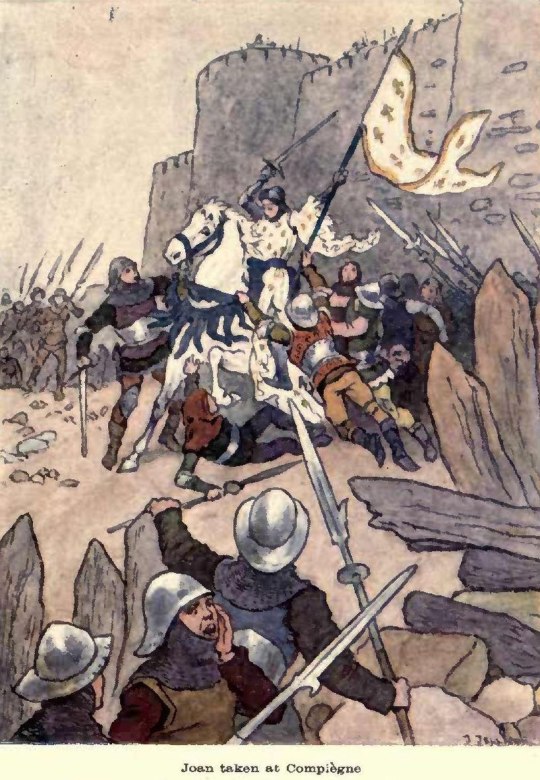
Jeanne d’Arc - by John Jellicoe (1841-1914)
#jeanne d'arc#juana de arco#joan of arc#jehanne d'arc#jeanne la pucelle#la pucelle#la pucelle d'orleans#joan the maid#the maid#the maid of orleans#john jellicoe
52 notes
·
View notes
Quote
I fear nothing, for God is with me.
Jeanne d'Arc
19 notes
·
View notes
Photo
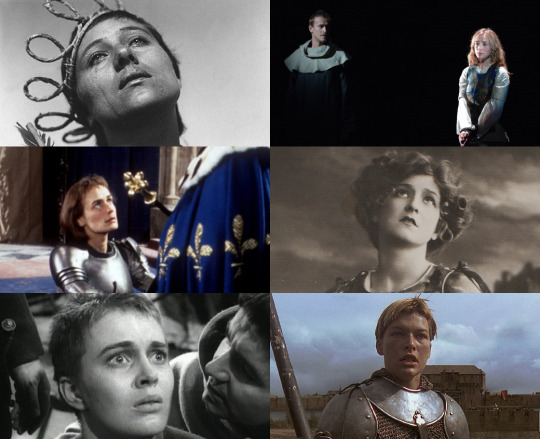
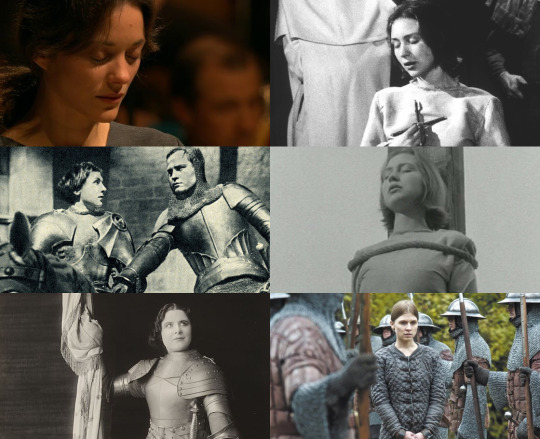
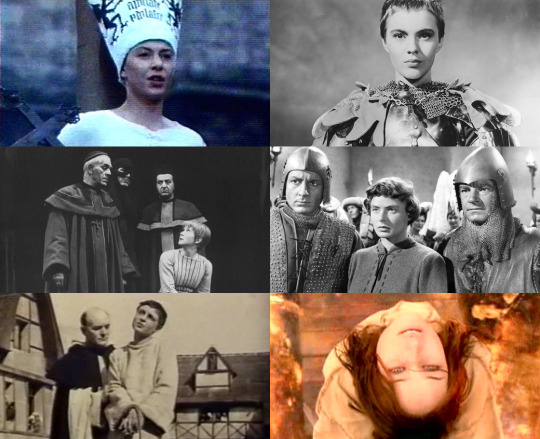
"I am not afraid; I was born to do this."
#Joan of Arc#Jeanne d'arc#The Maid of Orleans#La Pucelle D'Orleans#film#my compilations#through the years
69 notes
·
View notes
Photo

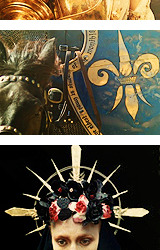
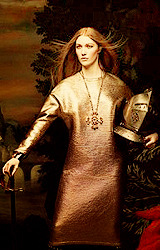
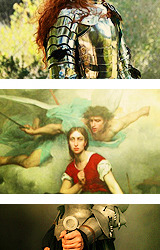


history series → la pucelle d'orléans [jeanne d'arc]
i am not afraid; i was born to do this
4K notes
·
View notes
Photo
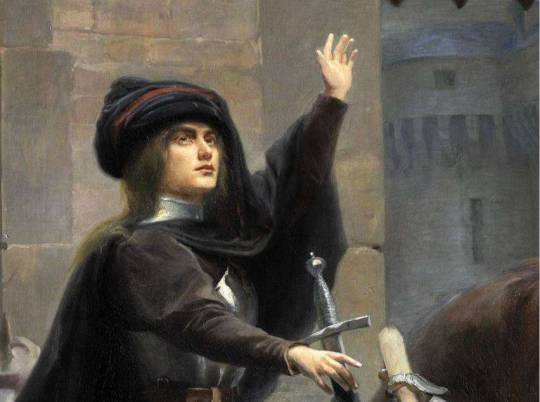
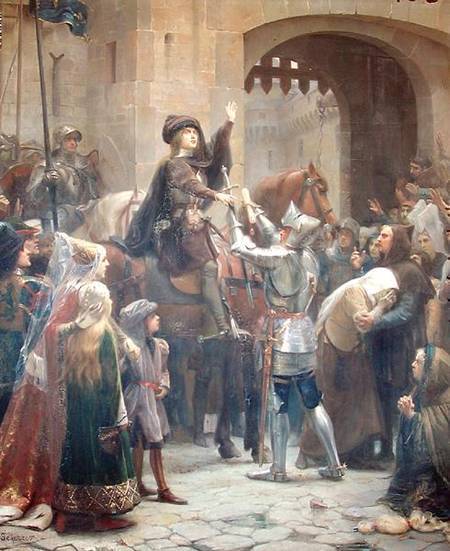
Jeanne d’Arc - by Jean-Jacques Scherrer.
#jeanne d'arc#juana de arco#joan of arc#jehanne darc#jeanne la pucelle#la pucelle#la pucelle d'orleans#joan the maid#the maid#the maid of orleans
5 notes
·
View notes
Photo
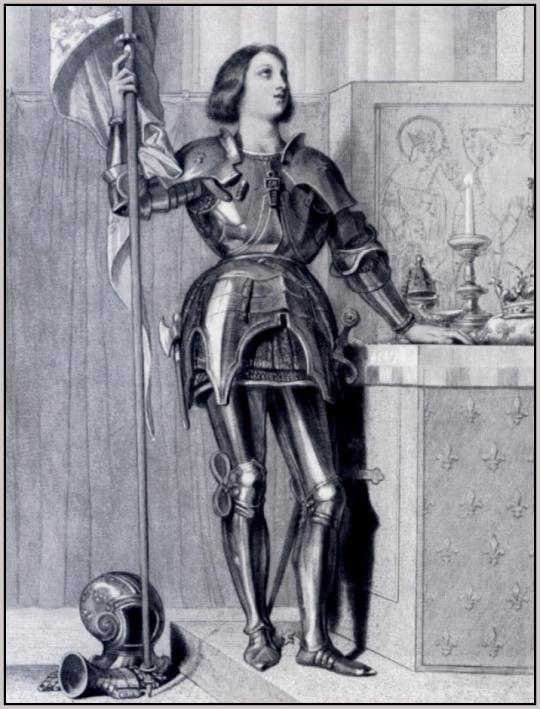
Jeanne d’Arc - by Jean-Auguste Dominique Ingres.
#jeanne d'arc#jehanne darc#joan of arc#juana de arco#jeanne la pucelle#la pucelle#la pucelle d'orleans#joan the maid#the maid#the maid of orleans
3 notes
·
View notes
Photo
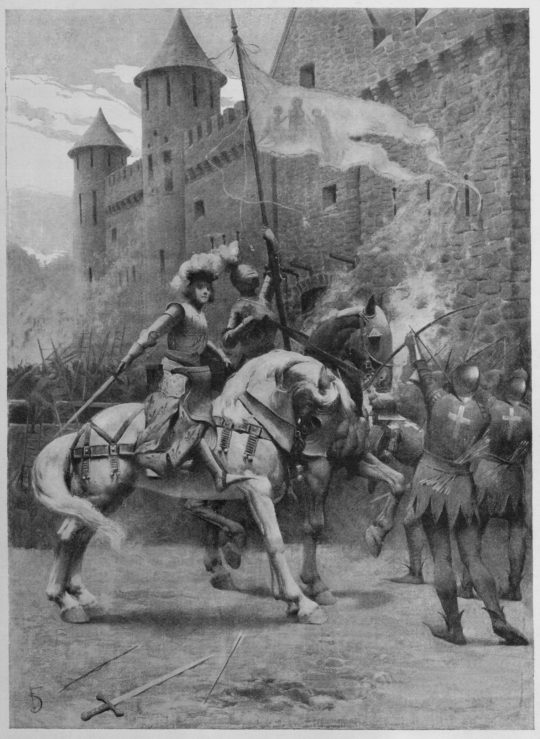
Jeanne d’Arc | Personal Recollections of Joan of Arc, 1896
(Novel by Mark Twain)
#jeanne d'arc#juana de arco#joan of arc#jehanne darc#jeanne la pucelle#la pucelle#la pucelle d'orleans#the maid#joan the maid#the maid of orleans#personal recollections of joan of arc
4 notes
·
View notes